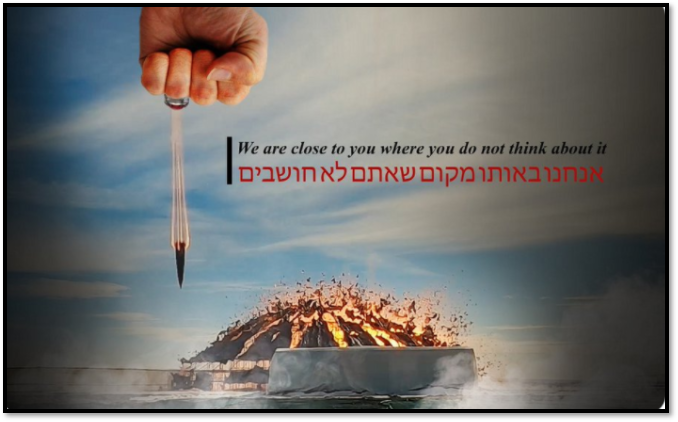January 3
Nuclear: The eighth round of diplomatic talks to return Iran and the United States to full compliance with the nuclear deal resumed after a brief pause for the New Year holiday. On the second day of talks, British Prime Minister Boris Johnson called on Iran “to engage in good faith.” In a statement, he warned that “time is running out to reach an agreement.”
Iraq: U.S. forces in Iraq shot down two armed drones approaching a military base near Baghdad International Airport that hosts U.S. military advisors. “Soleimani’s revenge” was written on one wing of the drones. “Revenge operations for our leaders” was written on another wing. The attack coincided with the two-year anniversary of the U.S. assassination of General Qassem Soleimani, the commander of Iran’s elite Qods Force, and Abu Mahdi al Muhandis, an Iraqi militia leader.
Legal: An Ontario court awarded $83.94 million (plus interest) to the families of six people killed in the downing of a Ukraine International Airlines flight in 2020. The Islamic Revolutionary Guard Corps (IRGC) said that its forces mistook the plane for a cruise missile and fired on it, killing all 176 people on board – including 55 Canadian citizens and 30 permanent residents. The families’ lawyer said that his team would explore options for compensating the families, including seizing Iranian assets in Canada and abroad.
Political/Military: Iran marked the second anniversary of the U.S. assassination of General Qassem Soleimani, the commander of Iran’s elite Qods Force, with official speeches, commemorative rallies, major media coverage, and inflammatory threats. Soleimani, who was considered a military hero for directing Iranian military operations across the Middle East, was killed in a U.S. drone strike shortly after he arrived in Baghdad to meet Iraqi allies in early 2020. At one commemoration, Supreme Leader Ayatollah Ali Khamenei warned that Soleimani was “more dangerous” as an assassinated “martyr” than as a military leader. In a more ominous threat, President Ebrahim Raisi, the new hardline leader and former judiciary chief, called for former President Donald Trump to be tried under Islamic law for ordering Soleimani’s assassination. “If not, I’m telling all American leaders, don’t doubt that the hand of revenge will come out of the sleeves of ummah (Islamic nation).”

Israel: To mark the anniversary of Soleimani’s death, pro-Iranian hackers launched a cyber attack on The Jerusalem Post website. The newspaper’s homepage was replaced with a graphic of a fist with a red ring – similar to the one worn by Soleimani – firing at a model of Israel’s Dimona nuclear facility. The picture included a message in English and Hebrew: “We are close to you where you do not think about it.” The Twitter account of Maariv newspaper, a sister publication, was also hacked and briefly ran the same graphic.
January 4
Energy: In an interview with The National, Iraqi Electricity Ministry spokesperson Ahmed Moussa said that Iran had cut gas supplies to 8.5 million cubic meters a day down from 50 million. The decrease caused electricity shortages. Iran made the cuts after Iraq failed to pay previous bills.
Economy: The South Korean foreign ministry announced that a delegation would visit Vienna to “explore ways to resolve the issue” of the $7 billion in Iranian assets frozen in South Korean banks due to U.S. sanctions. The delegation was due to hold consultations with Iran, the United States, the European Union and European powers on the sidelines of the ongoing nuclear talks.
Iraq: Iraqi forces shot down two armed drones approaching Ain al Asad, an air base in western Anbar province that hosts U.S. troops. Pentagon spokesperson John Kirby said that the two drone attacks in January were “very much in keeping with the kind of attacks we've seen from Iran-backed militias in Iraq and in Syria, and so obviously our working-level assumption is that such groups were responsible for these.”
Israel: Major General Aharon Haliva, the head of Israeli military intelligence, reportedly said that restoring the 2015 nuclear agreement would be better for Israel than if the talks in Vienna collapsed. At a security cabinet meeting, he reportedly said that the pact would buy Israel time to prepare for a potential escalation in tensions with Iran. Other Israeli officials had argued that only an agreement with stricter limits on Iran’s nuclear program was worth pursuing.
January 5
Syria: “Iran-supported malign actors” fired eight rockets at the Green Village, a base in eastern Syria that houses U.S. troops, according to the U.S.-led coalition to defeat ISIS. Coalition forces fired six artillery rounds in response. On the previous day, the coalition launched pre-emptive strikes on several rocket launch sites near the Green Village. About 900 U.S. troops are stationed in Syria to help the Kurdish-led Syrian Democratic Forces (SDF) contain ISIS.
Iraq: A Katyusha rocket hit an Iraqi base hosting U.S. forces near Baghdad International Airport. It did not appear to cause any damage or injuries. The attack mirrored others attributed to Iran-backed militias.
Security: The IRGC and the governor of Alborz province dismissed rumors about an explosion in the city of Karaj, the location of a plant that produces centrifuges, machines that are key to Iran’s nuclear program because they enrich uranium. The Karaj plant was sabotaged in an attack in June 2021 that Iran blamed on Israel. The IRGC attributed the loud noise that sparked the rumors to a training exercise involving rocket fire. “We call upon our dear compatriots not to pay attention to the rumors made by the opponents and enemies of the Iranian nation,” an IRGC spokesperson told state media.
#IRGC attributes loud sound near Tehran to rocket shooting in training exercise https://t.co/JreI6C6cEd pic.twitter.com/JDx1wOnVrY
— IRNA News Agency (@IrnaEnglish) January 5, 2022
